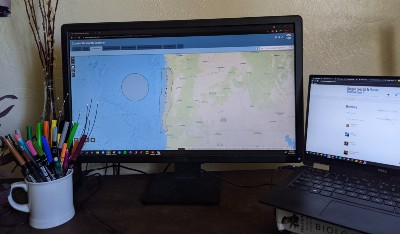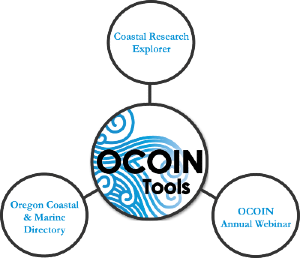To echo the words of my mentors in a meeting yesterday, “it’s been 10 weeks already?!” My time at the Oregon Coastal and Ocean Information Network (OCOIN) has absolutely flown by. Beyond a doubt, my personal growth and learning over the course of this Summer is due to the amazing network of people within OCOIN and Sea Grant. I felt supported by my mentors who both helped me become an expert in ESRI software, like survey123, and supported my own curiosity and innovation while working on OCOIN’s tools this summer. I also want to recognize my fellow Oregon Sea Grant Summer Scholar, Joshua, whose collaboration allowed me to be a better team member and always challenged me to learn more skills and organize efficiently.
This internship confirmed that after I graduate in 2022 I want to continue exploring the ways mapping and spatial data can be used as a research method and a vehicle for science communication. I plan on taking a year to work before pursuing a graduate degree in the geospatial data science realm, and I feel confident the skills I’ve learned at OCOIN will help me with both endeavors. Beyond software, my expanded confidence in troubleshooting and the design and implementation of user-interface updates I gained while working on OCOIN’s tools will be invaluable while searching for jobs.

Finally, I would like to say a heartfelt thank you to the Oregon Sea Grant, my mentors in the CEI program, and the entire team at OCOIN. It was a pleasure to work with everyone and I know we will be in contact in the future!




